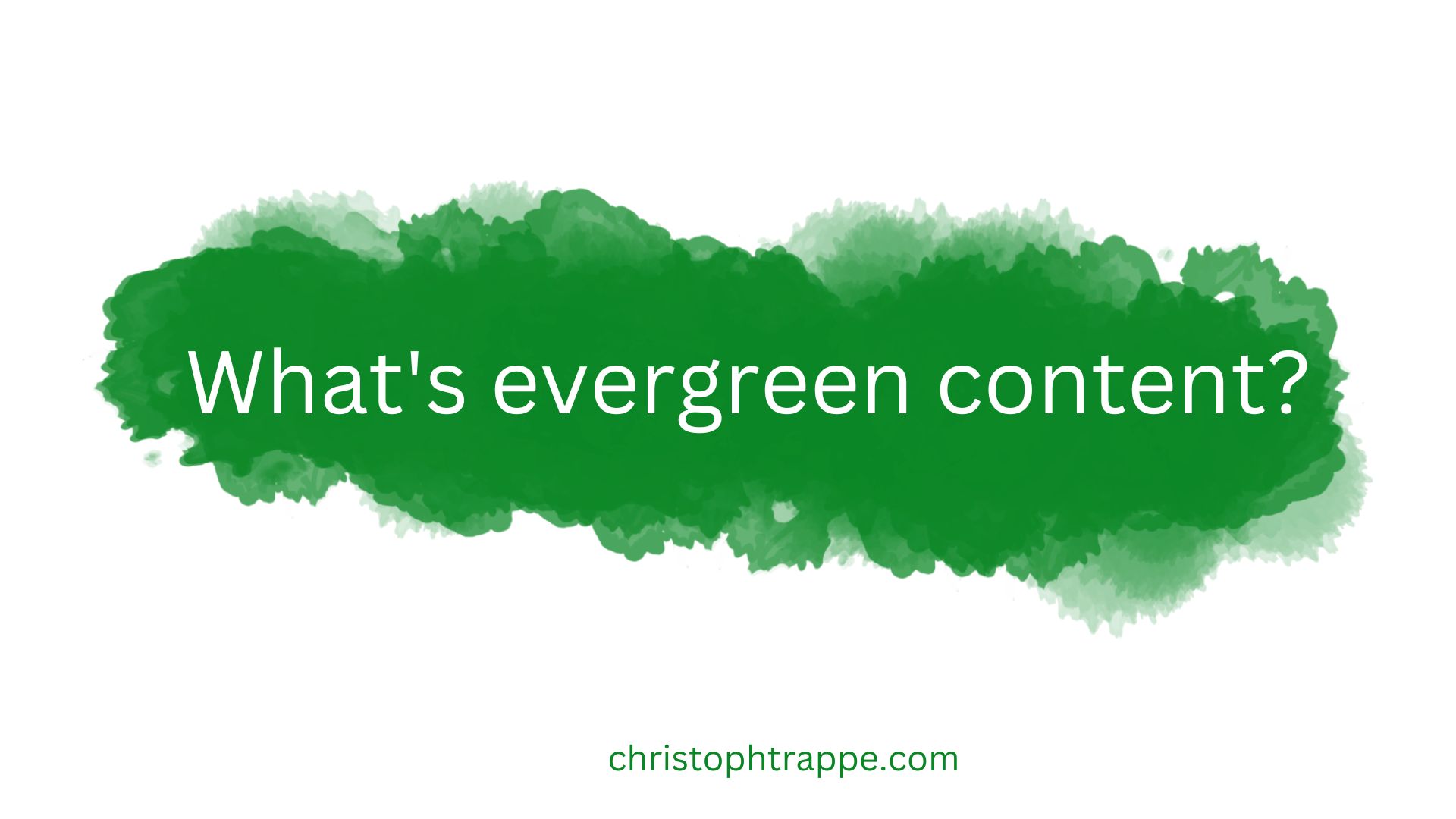Trappe Digital LLC may earn commissions from sponsored links and content. When you click and buy you also support us.
You may have heard the term evergreen content when people talk about content strategy. But what is evergreen content, and when should we use it? I discuss the topic in this article, including:
- Evergreen content definition
- Why evergreen content matters
- What are the challenges with evergreen content?
- Evergreen content ideas
Evergreen content definition
Creating evergreen content means that the content we create is not outdated quickly. For example, journalists often write news articles that have updates to them in days and sometimes minutes. The Marketing O’Clock Podcast is an example of primarily newsy content. The updates the team shares are very interesting, but they’re not evergreen because they will be updated at some point.
Evergreen content also might need updates at times but, in general, needs fewer updates than content that’s more news-focused. Evergreen topics are correct and up to date for a longer period of time.
Read next: 6 Things to Consider with Short-Form Content
Why evergreen content matters
The results of evergreen content compound over time because, in theory, there will be interest in the content over time because of the ongoing relevance to the topic.
Evergreen content matters because it can help us be more effective and efficient with our content strategy. We don’t have to be on the news hamster wheel and tie all content pieces to current events. So, for example, this article should have some longevity because the topic should be of interest as much today as it will be in a couple of months.
In other words, this kind of content extends the shelf life of relevancy. That’s important because content teams can only create a certain amount of content in the time they have. This type of content can help us drive more performance out of content overall.
Read next: Why lower rankings on SERPs for your website matter, too.
What are the challenges with this kind of content?
One challenge is that it can be much easier to talk about things currently happening as opposed to continuously ongoing subjects. Just think about things that are going on in our lives. We look at the current highlights. Something new happened. A new product was released or something else that had a definite start and end point. So we want to talk about those things, and there is a place to create content around those items, but the shelf life is likely much shorter than accurate evergreen content.
Another challenge with evergreen content can be the ramp-up period. Sometimes business leaders want the content to perform today, preferably yesterday. But that’s not how content strategy works. Indeed, you can have some quick wins, but the best content strategies and performance compound over time. The more relevant content that is published and the more relevant that content stays, the more meaningful the results are.
Read next: 7 Reasons Why SEO Matters
Evergreen content ideas
To develop good content ideas in this area, think about topics people continuously discuss in your industry. For example, in content strategy, issues that could apply might be:
- How long does it take to write a blog post?
- What are the different ways to work with subject matter experts?
- How to choose technology to make content creation easier
And indeed, some of these can be updated as time goes on because new strategies and technologies evolve. But they can be written in a way to make them less timely and more relevant over an extended period of time.
View this post on Instagram
Evergreen content does work, but we must be aware that it might take a little time for it to perform, but when it starts performing, it most likely compounds. In addition, it’s also good to remember that we need to update content from time to time. So evergreen content can be relevant for an extended period, But some of it is not forever green content.

